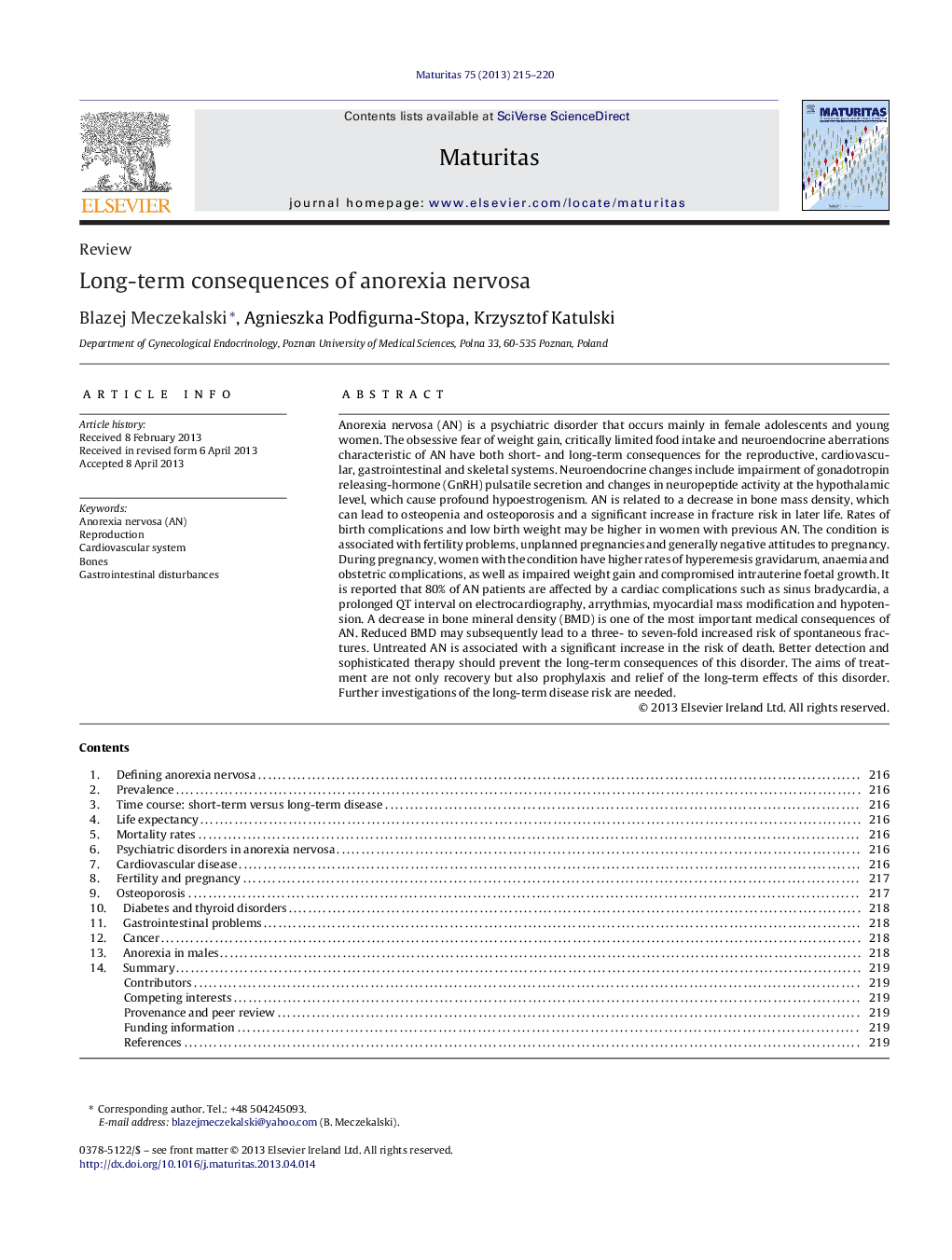| Article ID | Journal | Published Year | Pages | File Type |
|---|---|---|---|---|
| 10743589 | Maturitas | 2013 | 6 Pages |
Abstract
Anorexia nervosa (AN) is a psychiatric disorder that occurs mainly in female adolescents and young women. The obsessive fear of weight gain, critically limited food intake and neuroendocrine aberrations characteristic of AN have both short- and long-term consequences for the reproductive, cardiovascular, gastrointestinal and skeletal systems. Neuroendocrine changes include impairment of gonadotropin releasing-hormone (GnRH) pulsatile secretion and changes in neuropeptide activity at the hypothalamic level, which cause profound hypoestrogenism. AN is related to a decrease in bone mass density, which can lead to osteopenia and osteoporosis and a significant increase in fracture risk in later life. Rates of birth complications and low birth weight may be higher in women with previous AN. The condition is associated with fertility problems, unplanned pregnancies and generally negative attitudes to pregnancy. During pregnancy, women with the condition have higher rates of hyperemesis gravidarum, anaemia and obstetric complications, as well as impaired weight gain and compromised intrauterine foetal growth. It is reported that 80% of AN patients are affected by a cardiac complications such as sinus bradycardia, a prolonged QT interval on electrocardiography, arrythmias, myocardial mass modification and hypotension. A decrease in bone mineral density (BMD) is one of the most important medical consequences of AN. Reduced BMD may subsequently lead to a three- to seven-fold increased risk of spontaneous fractures. Untreated AN is associated with a significant increase in the risk of death. Better detection and sophisticated therapy should prevent the long-term consequences of this disorder. The aims of treatment are not only recovery but also prophylaxis and relief of the long-term effects of this disorder. Further investigations of the long-term disease risk are needed.
Related Topics
Life Sciences
Biochemistry, Genetics and Molecular Biology
Ageing
Authors
Blazej Meczekalski, Agnieszka Podfigurna-Stopa, Krzysztof Katulski,
